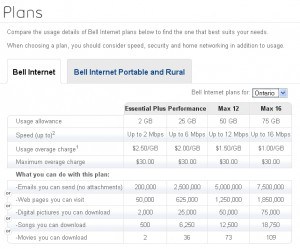Today is Stop the Cap!‘s first anniversary. One year ago today, this website was launched with the news that Frontier Communications, the local telephone company in Rochester, New York and in dozens of mostly rural communities nationwide, had quietly changed its Acceptable Use Policy to define appropriate maximum usage of their DSL service at a measly 5GB per month.
The boneheaded, out of touch decision was called out for what it was: a profiteering provider pilfering wallets of their broadband customers.
All the signs of a Money Party among cable and DSL providers at consumer expense were apparent last summer. Time Warner Cable was experimenting with a consumption billing plan in Beaumont, Texas. In Canada, rhetoric about “bit caps” was already being circulated, trying to convince Canadians that broadband service was somehow as difficult to provide there as it is in Australia and New Zealand, where such caps were already in place.
To bring limits, rationing quotas, and consumption based billing to the United States would require consumers to ignore massive profits broadband providers were harvesting quarter after quarter at existing prices. But demands for big profits from Wall Street meant they had to come from somewhere, and for cable companies with eroding profits from their cable TV divisions, and telephone companies dealing with disconnect requests for wired telephone lines, broadband was their choice.
It seems that what was insanely profitable a decade ago, when cable modem and DSL service started to introduce Americans to broadband, would now simply be ‘piles of cash stacked like cord wood’-profitable as traffic increased. As the broadband adoption rate increased, bandwidth costs plummeted, and several providers also proudly trumpeted their reduced investments in their networks as a hallmark of keeping “costs under control.”
Consumers began actually using their service for… broadband-specific services, at the encouragement of providers’ marketing departments, touting their “always on” connection at “blazing fast speeds” to download music, movies, play games, and more. Network utilization increased, and providers want someone to pay for a “bandwidth crisis” that isn’t a crisis at all. Responsible investment in network infrastructure should be a given, in recognition that at least a small portion of those growing profits must be spent on maintaining and improving service.
One year ago, I laid out what was before us:
Cable operators have been discussing implementing usage caps in several markets to control what they refer to as a “broadband crisis.” The industry has embarked on a lobbying campaign to convince Americans, with scant evidence and absolutely no independent analysis of their numbers, that the country is headed to a massive shortage in bandwidth in just a few short years, and that a tiny percentage of customers are hogging your bandwidth.
Frontier, ever the rascally competitor, has decided to one-up Time Warner’s Road Runner product by slapping on a usage cap now for DSL customers before Road Runner considers doing the same. And in a spectacularly stupid move competitively, they have implemented a draconian cap that even the cable industry wouldn’t try to implement.
Time Warner Cable “took one for the team,” according to industry-friendly Multichannel News, when it introduced a ludicrous Internet Overcharging experiment of its own announced this past April, which would have “saved” customers money by getting them to “pay for what they use.” In fact, their plan proved my point last summer, following the same roadmap of “bandwidth crisis” to “heavy downloaders” to trying to squeeze customers for more money for upgrades they could easily have done with the enormous profits they already earn.
Their proposal would have made a deliciously profitable $50 a month Internet service now cost consumers $150 a month with absolutely zero improvement in service, speed, or performance. But Wall Street would have been happy with the higher returns.
Some 400+ articles later, we’ve educated consumers across North America about the reality of Internet Overcharging. Despite industry propaganda “education” efforts, astroturfing groups we’ve exposed as having direct connections with the telecommunications providers paying them to produce worthless studies, fear-mongering about Internet brownouts by equipment vendors with solutions to sell, and a hack-a-thon of formerly respectable broadband pioneers and ex-government officials who sold their credentials for a paycheck to lobby and spout industry propaganda, most consumers continue to reject overcharging for their broadband service. Consumers instinctively know a cable company with a rate change always means a rate increase, and plans to “save people money” actually means they will “protect industry profits.”
We have achieved victory after victory in 2008-2009:
- Fought back against Frontier’s boneheaded plan, and convinced them that DSL can compete best on price and flexibility — no usage cap has ever been enforced at Frontier, and today they are using Time Warner Cable’s blundering profiteering experiment against them in their marketing materials. For rural Frontier customers with no other broadband provider, that’s a major relief from being stuck with one broadband option that rations their usage to ludicrously low levels.
- Stopped Time Warner Cable’s experiment before it got off the ground in several “test cities.” The people of Austin, San Antonio, Rochester, and the Triad region of North Carolina did Time Warner Cable customers nationwide a tremendous service in halting this experiment before it spread. Our efforts even brought a United States Senator, Charles Schumer, to the front lawn of Time Warner Cable in Rochester to announce the nightmare was, at least for now, over. We managed to even see an end to the overcharging of customers in Beaumont, Texas who lived through a summer, winter, and spring, overpaying for their broadband service.
- We raised hell in the North Carolina state legislature, coming to the aid of Wilson and other communities in the state trying to get municipal broadband projects off the ground. Communities across the state faced anti-consumer corporate protectionist legislation written by the telecommunications industry, introduced by willing elected officials who took big telecom money, and sold out their constituents. We killed two bills, forced a sponsor of one such measure to repudiate his own bill, and gave major headaches to legislators that thought they could just cash those big checks, vote against your interests, and you’d never know. Those days are over.
- We helped bring legislation up in Congress to draw attention to the issue of Internet Overcharging, and have called out providers who want to use their marketing departments to lie to customers about their broadband costs and profits, while being considerably more honest with their shareholders in their quarterly financial reports. Congressman Eric Massa’s legislation would demand companies show proof of the need to implement consumption based billing. Indeed, as consumers find out how profitable broadband service is at today’s prices, they’ll never tolerate the profit padding providers seek with tomorrow’s caps/limits, penalties and fees, and unjustified tiers.
As you can see, Internet Overcharging is not a dead concept. An educated consumer will recognize a swindle when they see one, and providers continue to test overcharging schemes in focus groups in different parts of the country. They’ll use any analogy, from a buffet lunch to a toll road traveled by big trucks and little cars. They’re looking for anything they can find to sucker you into believing paying more for your broadband service is fair.
Broadband service must be fast, affordable, and competitive. In too many communities in Canada and the United States, a monopoly or duopoly marketplace has guaranteed none of those things. In our second year, we must remain vigilant in our core mission to fight Internet Overcharging, but we also need to fight for more competition, regulation where competition does not exist, oversight over providers, and support for projects that will enhance broadband and make it more affordable than ever. With your help, we can stand toe to toe with any provider, because the facts are on our side, not theirs, when it comes to Internet Overcharging schemes.
Welcome to Year Two!


 Subscribe
Subscribe




